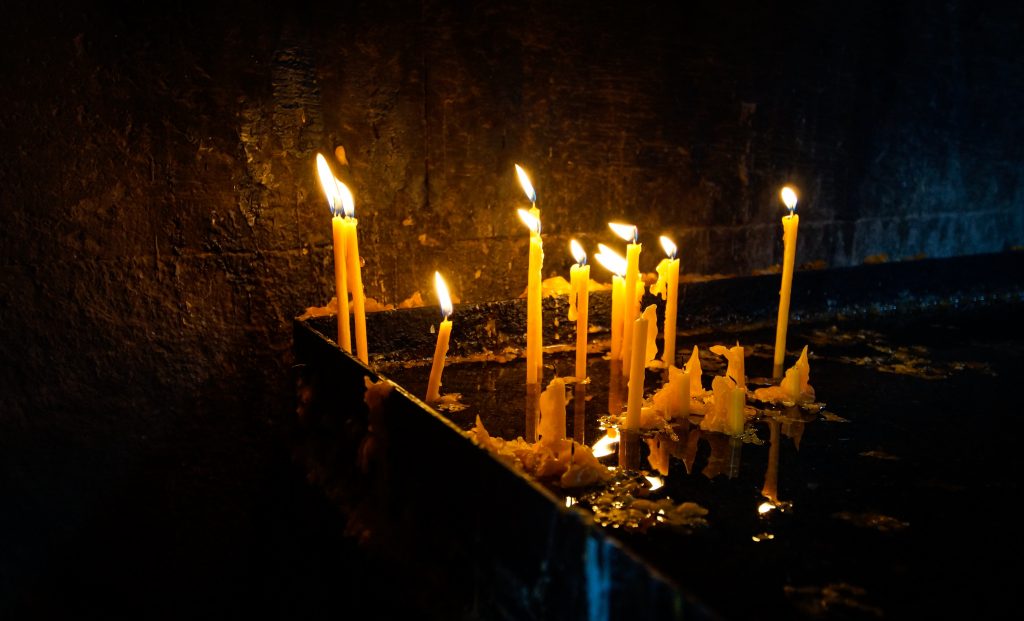Eastern Orthodox Christianity and the West
Talvikki Ahonen

For centuries if not millennia, Orthodox Christianity has maintained a complex cultural/political relationship with the “West.” The Great Schism of 1054 divided Christendom and formed the religious and cultural self-understanding of the Orthodox faithful as inherently opposed to the West. The vagueness of the term West has enabled a wide range of (often simplified) interpretations and has served a variety of political purposes. At the same time, Western interpretations of Orthodoxy have exhibited similar shortcomings. To what extent Orthodox Christian communities have internalised conceptions of Orthodoxy as anti-West, remains an open question, especially considering that a large proportion of the Orthodox faithful live in diaspora in Western societies.
Religious and cultural identities often overlap, and a religious identity does not always imply certain religious beliefs or the occurrence of religious practices. This is particularly true when it comes to Orthodox Christian devotees. Ninety-one per cent of the European Orthodox Christian population claims to believe in God. However, according to the statistics provided by the Pew Research Center, those who identify as Orthodox Christians are less likely to actively practice their religion than people of other faiths. Compared to, for example, the Catholic faithful, Orthodox Europeans are less likely to practice their faith by attending services, praying or following the lent. These statistics show what “being Orthodox” means to the Orthodox faithful of Europe: this identity is not only religious but also cultural and even political. While religious identifications are, in Western democracies, usually considered matters of personal choice and private life, this may be different for the faithful themselves.
The artificial dichotomy between the East and the West, as well as religious-cultural identity formation, involves political values and meanings, and Orthodoxy might bring additional elements into the equation. Over the last decades, the cultural position of Orthodox Christianity has been increasingly narrated in terms of “traditional values,” and the Orthodox Church has sometimes been considered, at least by some Orthodox faithful, to be the last fortress against the profanity and secularity of the so-called West. This narrative has been fuelled by Vladimir Putin’s government and its politics and has resonated among traditionalist Orthodox faithful in other parts of Europe.
Orthodox Christianity’s encounters with unfamiliar ideas and systems of thought have pushed Orthodox theologians and believers to define Orthodox theology’s conceptions of other churches and their legitimacy. The Orthodox theological tradition has both reflected and enhanced the antinomical representation of Orthodoxy and the West. One of the most influential modern Orthodox theologians, Georges Florovsky, who represents the so-called neopatristic school, argued in his book The Ways of Russian Theology (1937) that Orthodox theology has absorbed Western pietistic and scholastic ideologies, which he saw as alien to the Orthodox tradition. Florovsky’s view has been criticised and challenged by other scholars of Orthodox theology; however, it has nevertheless significantly influenced Orthodox self-understanding.
The 20th century marks an era of diaspora and oppression for Orthodox Christianity. The beginning of the 21st century seems to indicate at least two trends. First, the number of Orthodox Christians continues to decline, while other major branches of Christianity, Catholicism and Protestantism, are attracting more followers. Second, Orthodox churches have acknowledged that they need to engage in discussions on contemporary matters. This has been manifested in the Moscow Patriarchate’s document The Basis of the Social Concept (2000) and the Ecumenical Patriarchate’s document For the Life of the World: Towards a Social Ethos of the Orthodox Church (2020). How the Orthodox churches reply to the most important and acute contemporary issues, such as climate change or global wealth disparity, will further influence their position on the imagined East-West scale.
Dr. Talvikki Ahonen is a social scientist with academic interest in religious groups as political actors.